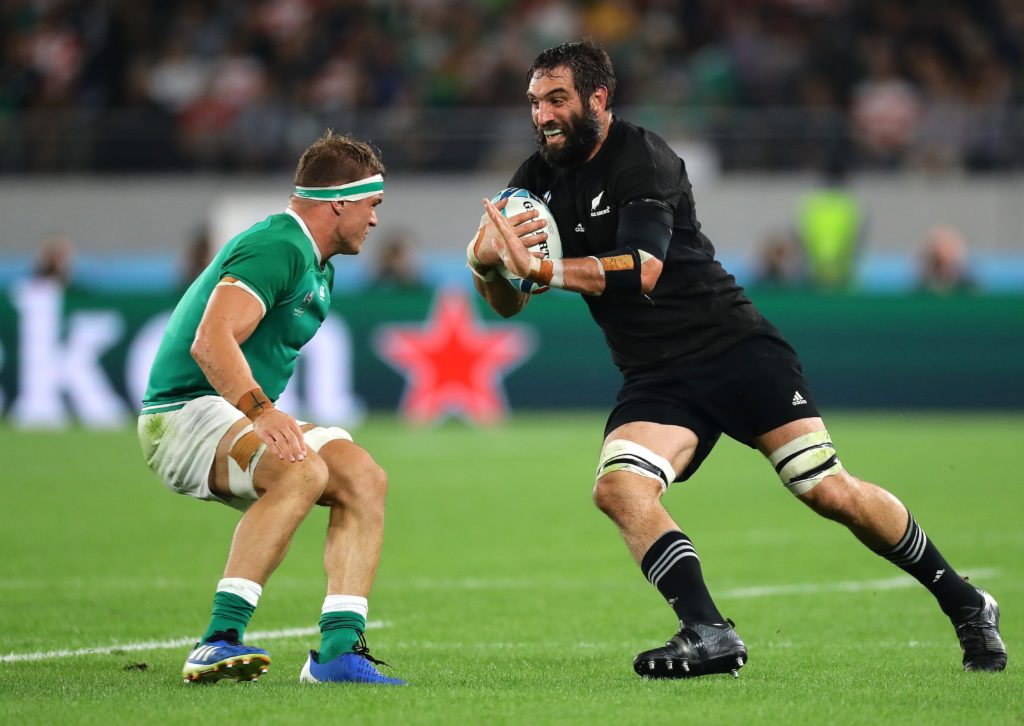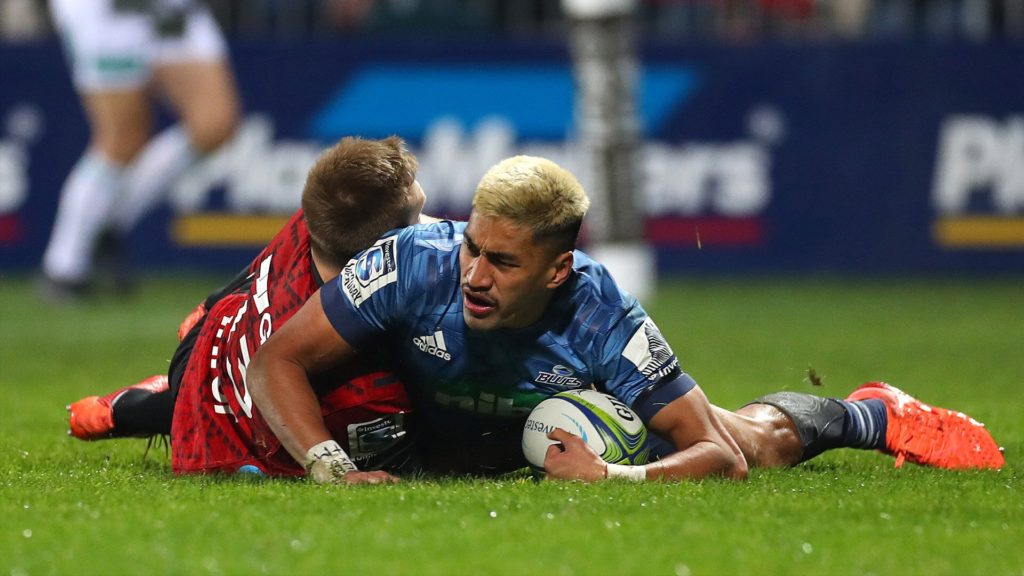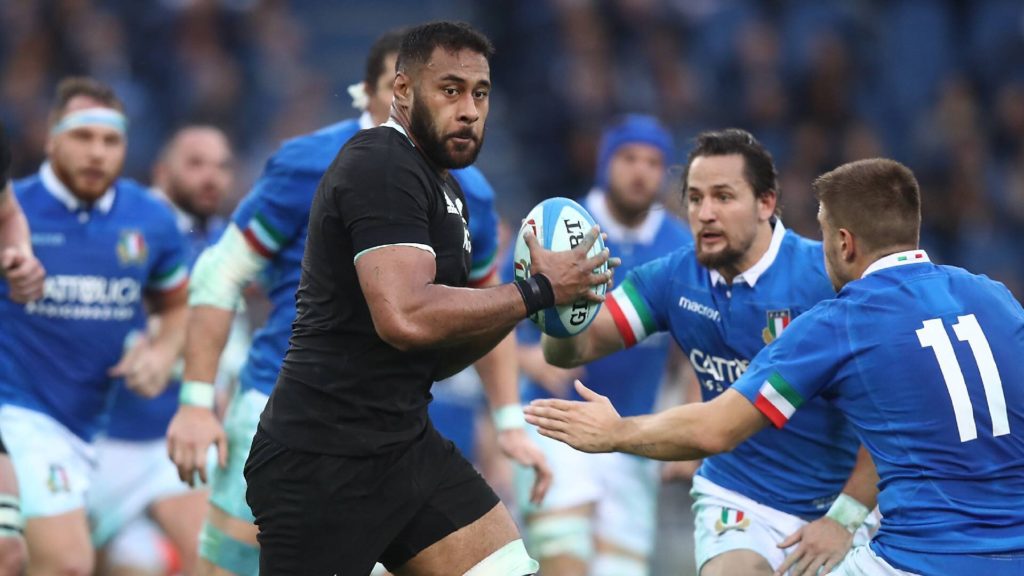As new All Blacks head coach Ian Foster settles himself into the hot seat with four tests against Australia and then a unique Rugby Championship, he is in the fortunate position of knowing he doesn’t need to concern himself, in the short team anyway, with easing any of his players out due to their advancing years.
His is a relatively young group and a relatively healthy one too, although hooker Dane Coles, who will turn 34 in December and is contracted until the end of next year, is one with a red flag hovering over him due to his age and a litany of lower leg and knee issues over the past few years.
But Coles is a rarity for Foster because while the Hurricanes veteran is a long shot to make the next World Cup in 2023, all of his teammates have the potential to – even Sam Whitelock, the 31-year-old who is now the All Blacks’ fourth most capped player.
Whitelock is contracted until the end of 2023 and while Covid-19 has torn up, set fire to and then buried the best laid plans of rugby players and supporters alike along with most others this year, it will almost certainly play a significant part in extending Whitelock’s career.

The lock looked weary at times last year, and if a single act symbolised his World Cup it was the frustrated shove to the face of England fly-half Owen Farrell which reversed a penalty inside England’s half for the All Blacks, who were chasing the game at 13-7 down with 13 minutes to go. Given England’s almost complete dominance that night it at Yokohama, it probably wasn’t a turning point as much as another indication it wasn’t going to be the All Blacks’ evening.
The coronavirus effectively forced Whitelock to abandon his stint with Japanese club Panasonic – which he enjoyed – and return to Christchurch to link again, after a much-needed rest, with the Crusaders. Fresher and released from the pressures of captaincy, he looked a different player in Super Rugby Aotearoa.
So as Foster (only on a two-year contract but almost certain to get an extension) builds towards the next World Cup he hasn’t got the same challenges faced by his predecessor Steve Hansen during his first few months of the job in 2012.
Back then, lock Ali Williams and hooker Andrew Hore were coming to the end of their careers. Williams retired at the end of that year, while Hore called it quits in 2013. Wing Cory Jane called time in 2014 as did scrum-half Piri Weepu. Brad Thorn and Richard Kahui went elsewhere after the 2011 World Cup final. It was a time of relative upheaval compared to what Foster faces.
So as Foster (only on a two-year contract but almost certain to get an extension) builds towards the next World Cup he hasn’t got the same challenges faced by his predecessor Steve Hansen during his first few months of the job in 2012.
Foster has no old guard to transition out and what he has now is what he will most likely still have in 2023. It’s almost unprecedented in modern New Zealand history that the All Blacks team in the first game of a World Cup cycle may end up looking incredibly like the one that plays in the last.
The prospect of having such a settled squad for the next three years is a luxury of itself, but the majority also have World Cup experience, while there are some genuinely exciting newcomers in Hoskins Sotutu, Caleb Clark, Tupou Vaa’i, Cullen Grace and Will Jordan plus others.
He also has a rejuvenated Whitelock, Rieko Ioane and Jordie Barrett, and while the latter two are by no means old – they are both only 23 – they endured their own adversity last year.
Ioane lost his coveted black No 11 jersey to George Bridge due to a form slump which meant his World Cup appearances were confined to matches against Canada and Namibia and the bronze playoff against Wales; a demotion difficult to take for a young man who was a sensation in 2017 and 2018 and who has scored 24 tries in 29 tests.

His wish – more like an obsession – with playing centre for the Blues could have dug him deeper into that slump given his defensive difficulties there a couple of seasons ago but instead it highlighted his best attributes; his pace and power, and as a result he won selection for the first test of the year against the Wallabies in the No 13 jersey.
The significance of that selection cannot be understated given it has broken up the Jack Goodhue-Anton Lienert-Brown partnership that appeared set to endure.
Instead of going for the tried and tested, the selectors felt they had to reward Ioane’s hard work and commitment by giving him exactly what he wanted; a first start at centre in a test match.
In fact, they were concerned that if they didn’t reward him in Wellington they may have lost him again; that Ioane had dug so deep after the personal blows during 2019 that another disappointment may have been too much to endure.
What made their decision slightly easier was Lienert-Brown’s form for the Chiefs in 2020 which, while not bad, wasn’t typically Lienert-Brown-like. The man known as ALB has also proven to be an effective weapon off the reserves bench.
“I’ve always said Rieko was a wing who could play centre,” Foster said when announcing his first match-day squad of the new era. “We knew he would play centre but we didn’t know how quick it was going to be. He’s done well, he worked really well through the Blues’ campaign. He’s been committed to it.
“We still like him on the wing but he’s put forward such a compelling case that he’s changed our minds and good on him. That was one of our toughest selections – the midfield… it was a reward for Rieko’s form. He’s confident, he’s running fast. In some ways it’s the same with Ofa [Tuungafasi]. He’s started at loosehead prop, gone to tighthead, and forced us to pick him.”
We knew he would play centre but we didn’t know how quick it was going to be. He’s done well, he worked really well through the Blues’ campaign. He’s been committed to it.
All Blacks coach Ian Foster
For Barrett, another young man with a sensational start to his career followed by challenges – in his case the tendency to make mistakes in big moments due to an overly ambitious attacking mindset – his reward for becoming a consistent and more robust player this year was a selection on the right wing at Sky Stadium.
Foster knows the road ahead will present significant challenges but he also has the luxury of knowing that all of his experienced players currently have the capability of going all the way to France in three years’ time and that many of them – Whitelock and fellow locks Patrick Tuipulotu, Scott Barrett and Brodie Retallick, plus Beauden Barrett and Lienert-Brown, are contracted until after the World Cup.

Jordie Barrett, George Bridge, Ioane, Richie Mo’unga and Sevu Reece are contracted until 2022, and while a host of others are only captured until the end of next year, including skipper Sam Cane, the uncertainty of careers abroad in this age of the coronavirus means remaining in New Zealand is looking increasingly attractive.
Cane’s re-commitment after being given the top job is a formality.
So the Foster era has begun, as has the All Blacks’ journey to the 2023 World Cup. But while the newcomers may provide the most excitement and enthusiasm over the next nine weeks, it may be that his most experienced players prove the difference in France.
“It’s definitely one of the nicer parts of the job,” Foster said of giving opportunities to youngsters. “When you see young men who grow over the years and are really working to chase a dream and they get a sniff and it becomes reality… it’s quite a big moment. For the team it shows we have faith in our squad. We know this is a year where we’re going to need that. And really to me it’s important that if they’ve got the energy and settled in well to this campaign then let’s get them on the park.”



Comments
Join free and tell us what you really think!
Sign up for free